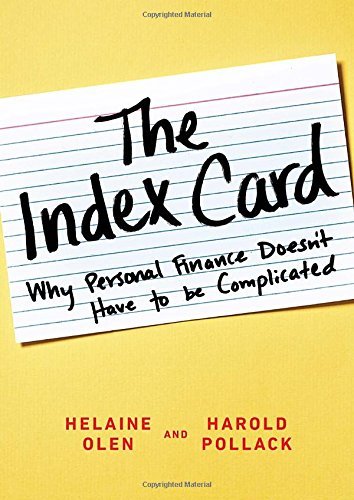What do you think?
Rate this book


256 pages, Hardcover
First published January 5, 2016
Rule #1 Strive to save 10 to 20 percent of your gross income
Rule #2 Pay your credit card balance in full every month
Rule #3 Max your 401(k) and other Tax-Advantaged savings accounts
Rule #4 Never buy or sell individual stocks
Rule #5 Buy inexpensive, well-diversified Indexed Mutual Funds and Exchange-Traded funds
Rule #6 Make your financial advisor commit to the Fiduciary Standard
Rule #7 Buy a home when you are financially ready
Rule #8 Insurance - Make sure you are protected
Rule #9 Do what you can to support the Social Safety Net
Rule #10 Remember the Index Card